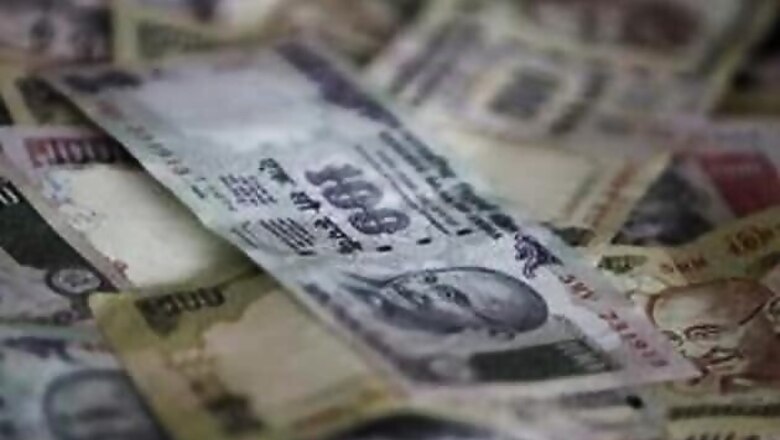
views
Mumbai: The rupee hit a record low against the dollar for a second consecutive session on Friday and posted its worst weekly fall in nine months, hurt by dollar demand from oil firms and gold importers as well as the broad risk-off sentiment.
Traders said the Reserve Bank of India stepped in to prop up the currency and prevent a much sharper fall, estimating dollar sales of $250-300 million, slightly bigger than its projected intervention on Thursday.
The past couple of sessions have resembled developments in May, when the rupee last tumbled to a string of record lows, as renewed global risk aversion is exposing India's economic challenges and its wide current account and fiscal deficits.
Analysts say the rupee could continue to fall further in the near term, dragged down by the momentum from the worsening global risk environment.
"58.50 may not be seen in the next one week or so, but the current rally has the momentum to take it there," said Rajeev Mahrotri, head of trading at IndusInd Bank.
The partially convertible rupee ended at 57.12/13 per dollar, according to SBI closing data, after hitting a record low of 57.32.
The fall for the day pushed the rupee 1.4 per cent below its Thursday close of 56.30/31.
NDFs are pricing further weakness ahead, with the one-month offshore contracts quoted at 57.52 while the three-month was at 58.29.
For the week, the rupee dropped a little over 3 per cent, to post its worst weekly decline in nine months.
The rupee had hit its last record low at 56.55 just on Thursday as risk aversion this week has increased after weak global economic data and after the Federal Reserve disappointed investors with the size of its US bond purchases.
The dollar rose to its highest in more than a week against a basket of major currencies on Friday, as investors' confidence in riskier assets was further knocked by a Moody's downgrade of the world's major banks.
The Sensex fell 0.4 per cent, though that was after cutting earlier losses of as much as 1.3 per cent.
"The broad risk aversion is hurting. There were bids from oil firms as oil prices are also lower while goldies also bought," said Vikas Babu Chittiprolu, a forex dealer with Andhra Bank.
The rupee also fell as oil companies stepped in to buy dollars.
The rupee showed little reaction despite news the RBI had discussed with state-run oil firms steering 50 per cent of their dollar purchases via a single state-owned bank, though no decision has been made, according to two oil executives.
The potential move has been widely speculated in markets, as oil companies account for around $10-12 billion of dollar demand in domestic currency markets each month, according to HSBC.
Oil companies currently buy dollars through a competitive bidding via banks, and perceptions they are looking to buy dollars can lead to volatility and hurt the rupee.
In the currency futures market, the most-traded near-month dollar-rupee contracts on the National Stock Exchange, the MCX-SX and the United Stock Exchange all ended around 57.27 on a total volume of $6.4 billion.




















Comments
0 comment